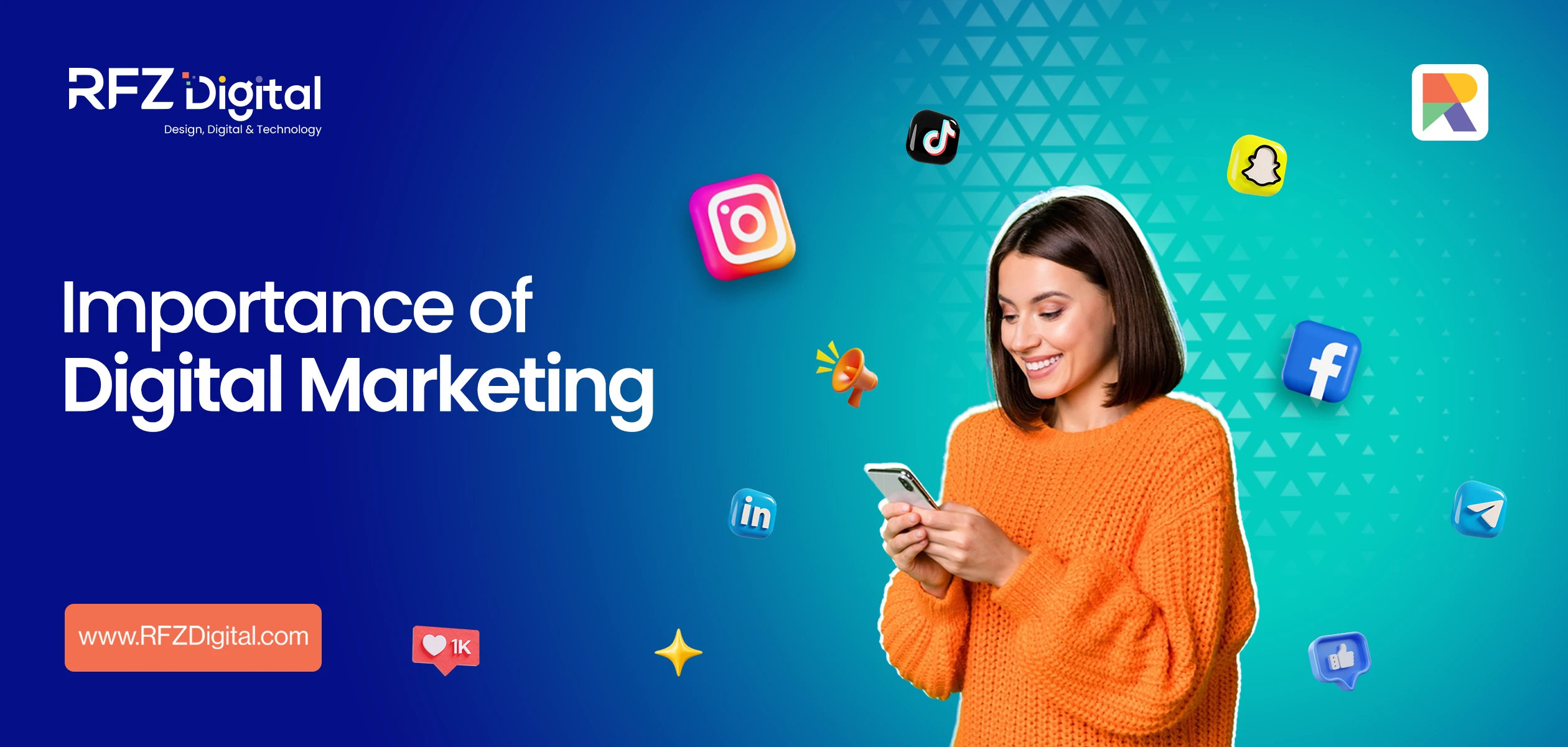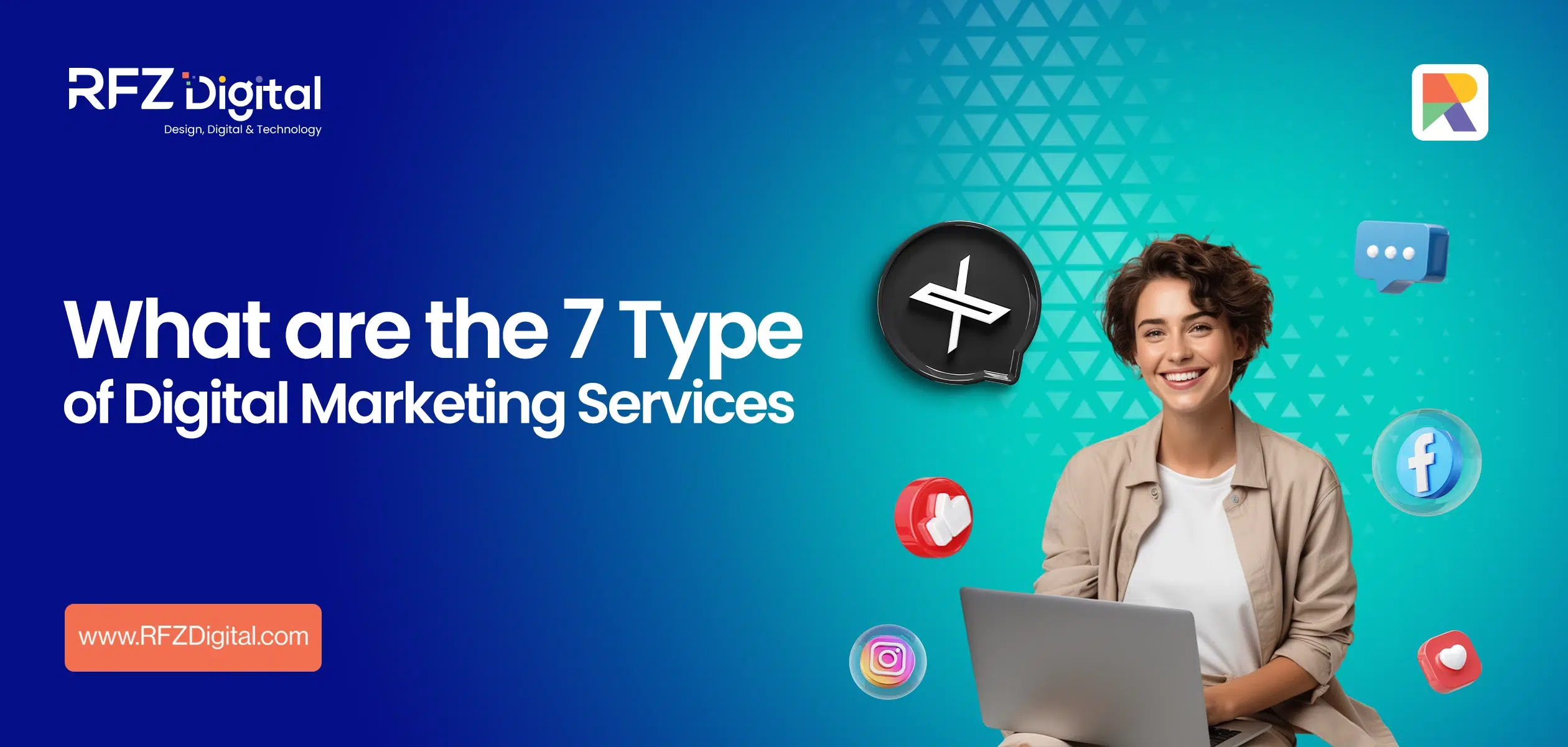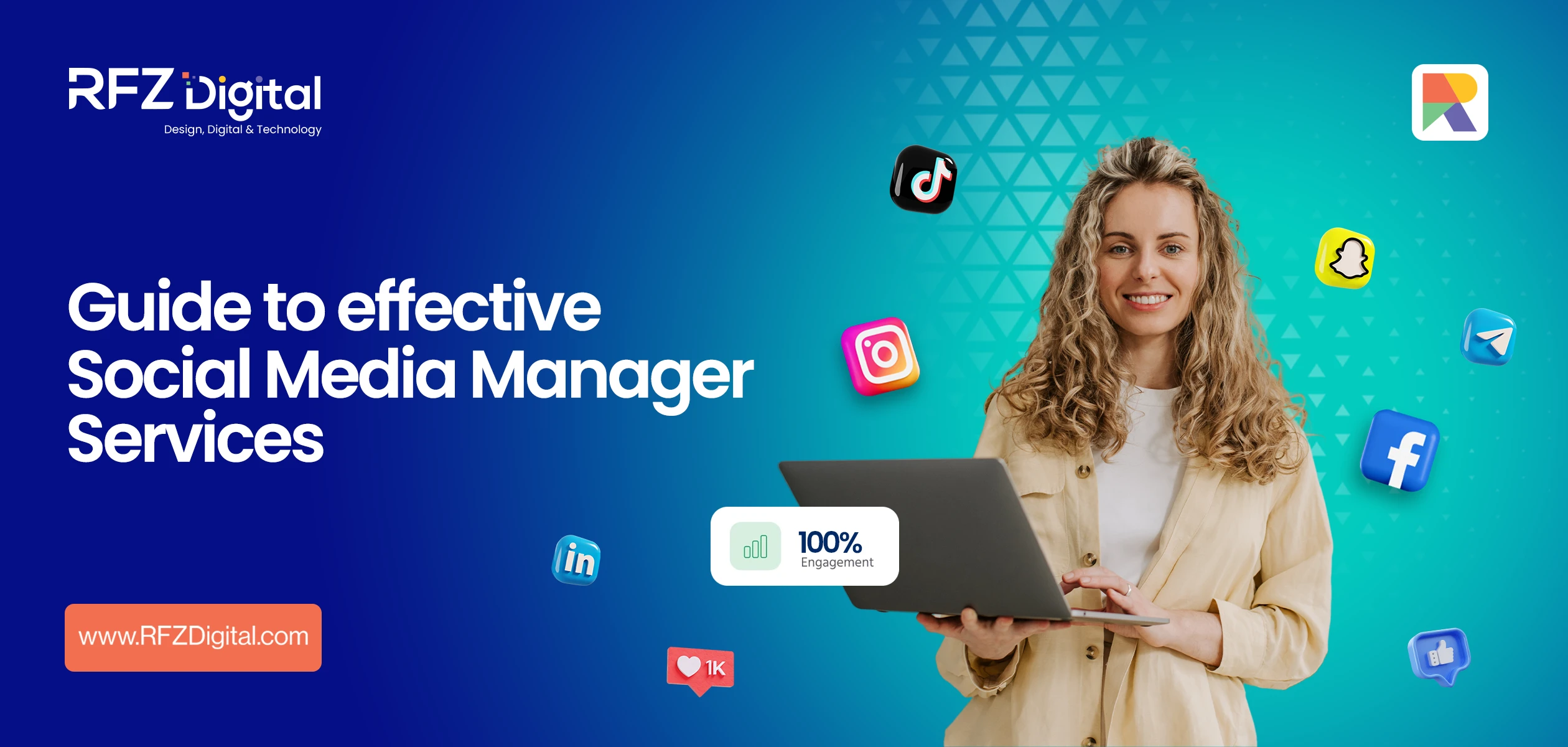In today’s fast-paced, tech-driven world, traditional marketing strategies alone are no longer enough to grow and sustain a business. Consumers are increasingly shifting online to search for products, compare options, read reviews, and ultimately make purchasing decisions. This evolution in consumer behavior has made digital marketing not just an option but a necessity. At RFZ Digital, we believe that digital marketing is the backbone of any successful business strategy. In this blog post, we’ll explore the importance of digital marketing, its various components, and how it can help businesses of all sizes.
What Is Digital Marketing?
Digital marketing refers to the use of online platforms, tools, and strategies to promote products and services. It encompasses a wide range of tactics, including:
- Search Engine Optimization (SEO)
- Pay-Per-Click Advertising (PPC)
- Social Media Marketing
- Content Marketing
- Email Marketing
- Influencer Marketing
- Affiliate Marketing
Unlike traditional marketing, which relies on TV, radio, or print ads, digital marketing allows businesses to reach their audience through websites, search engines, social media platforms, emails, and mobile apps.
Why Is Digital Marketing Important?
1. Wider Reach and Global Access
With the internet available to billions of people worldwide, digital marketing provides unparalleled access to a vast audience. Whether you’re a local business in London or a startup in Dubai, digital marketing allows you to connect with potential customers far beyond your physical location.
2. Cost-Effective Marketing
Traditional advertising methods can be expensive and hard to measure. In contrast, digital marketing offers a more affordable and trackable way to promote your business. For example, running a Google Ads campaign or boosting a Facebook post costs significantly less than a TV or radio ad.
3. Measurable Results
One of the biggest advantages of digital marketing is the ability to track and analyze campaign performance in real time. Tools like Google Analytics, Facebook Insights, and email marketing platforms provide detailed metrics that help you understand what’s working and what needs improvement.
4. Targeted Audience Reach
Digital marketing enables highly targeted campaigns based on user demographics, interests, location, online behavior, and more. This precision allows you to deliver the right message to the right people at the right time.
5. Enhanced Customer Engagement
With digital platforms like social media and email, businesses can build two-way communication with customers. This interaction fosters trust, loyalty, and customer satisfaction. Responding to reviews, answering questions, and engaging with your audience helps humanize your brand.
6. Higher Conversion Rates
Digital marketing channels often deliver better conversion rates than traditional methods. With proper optimization, landing pages, email sequences, and remarketing campaigns, businesses can turn more prospects into paying customers.
7. Adaptability and Real-Time Adjustments
Unlike printed ads or TV commercials, digital campaigns can be modified on the fly. This adaptability means you can make real-time changes based on campaign performance, seasonal trends, or emerging opportunities.
Key Components of a Successful Digital Marketing Strategy
1. Search Engine Optimization (SEO)
SEO improves your website’s visibility on search engines like Google. When your site ranks higher, it attracts more organic traffic. Key elements of SEO include:
- Keyword Research
- On-Page SEO (title tags, meta descriptions, content optimization)
- Technical SEO (site speed, mobile responsiveness, XML sitemaps)
- Off-Page SEO (Link Building)
2. Content Marketing
Content is the foundation of digital marketing. Blog posts, videos, eBooks, case studies, and infographics provide valuable information to your audience, improve SEO, and establish your brand as an authority in your niche.
3. Social Media Marketing
Social media platforms like Facebook, Instagram, LinkedIn, and TikTok offer powerful tools to reach and engage with your target audience. You can share content, run ads, and interact directly with users, building strong community connections.
4. Pay-Per-Click (PPC) Advertising
PPC ads allow you to appear at the top of search engine results or on social media platforms. You only pay when a user clicks your ad, making it a cost-effective way to generate qualified traffic quickly.
5. Email Marketing
Email remains one of the highest ROI digital marketing tools. Whether it’s newsletters, promotional offers, or nurturing campaigns, email keeps your audience informed and engaged.
6. Conversion Rate Optimization (CRO)
CRO focuses on optimizing your website and landing pages to increase the percentage of visitors who take a desired action, such as filling out a form or making a purchase.
Digital Marketing for Different Business Types
For Startups:
Startups benefit greatly from digital marketing due to its scalability and low cost. It helps build brand awareness, attract early customers, and gain competitive visibility.
For Small Businesses:
Digital marketing levels the playing field, allowing small businesses to compete with larger firms. Local SEO, social media, and email campaigns are particularly effective.
For Enterprises:
Large organizations use digital marketing for brand consistency, audience segmentation, and global outreach. Advanced tools and automation help streamline campaigns across multiple channels.
Trends Shaping the Future of Digital Marketing
AI and Automation
- Chatbots, predictive analytics, and automated content generation are improving efficiency and personalization.
Voice Search Optimization
- With more users relying on voice assistants, optimizing for voice search is becoming crucial.
Video Marketing
- Videos continue to dominate engagement metrics across platforms.
Personalization
- Tailoring content, emails, and product recommendations increases engagement and conversions.
Sustainability and Ethical Marketing
- Consumers are aligning with brands that demonstrate social responsibility and transparency.
How RFZ Digital Can Help You Win with Digital Marketing
At RFZ Digital, we specialize in designing custom digital marketing strategies that align with your business goals. Whether you’re looking to increase website traffic, improve search rankings, generate more leads, or build a stronger brand presence, our expert team is here to help.
We offer:
- In-depth SEO audits and ongoing optimization
- High-converting website design and development
- Full-service social media management
- Google Ads and paid media campaigns
- Creative content and blog strategies
- Email automation and funnel building
Final Thoughts
Digital marketing is no longer optional; it’s essential. Businesses that embrace digital strategies will not only survive but thrive in the modern marketplace. From improving visibility to increasing sales, digital marketing is the most effective way to reach and retain your target audience.
Whether you’re a small business owner or a marketing manager at a large corporation, investing in digital marketing is investing in the future of your brand.
Ready to grow your business online? Get in touch with RFZ Digital today and let’s create a strategy that drives real results.

 0
0





Comments:
No comments yet. Be the first to comment!